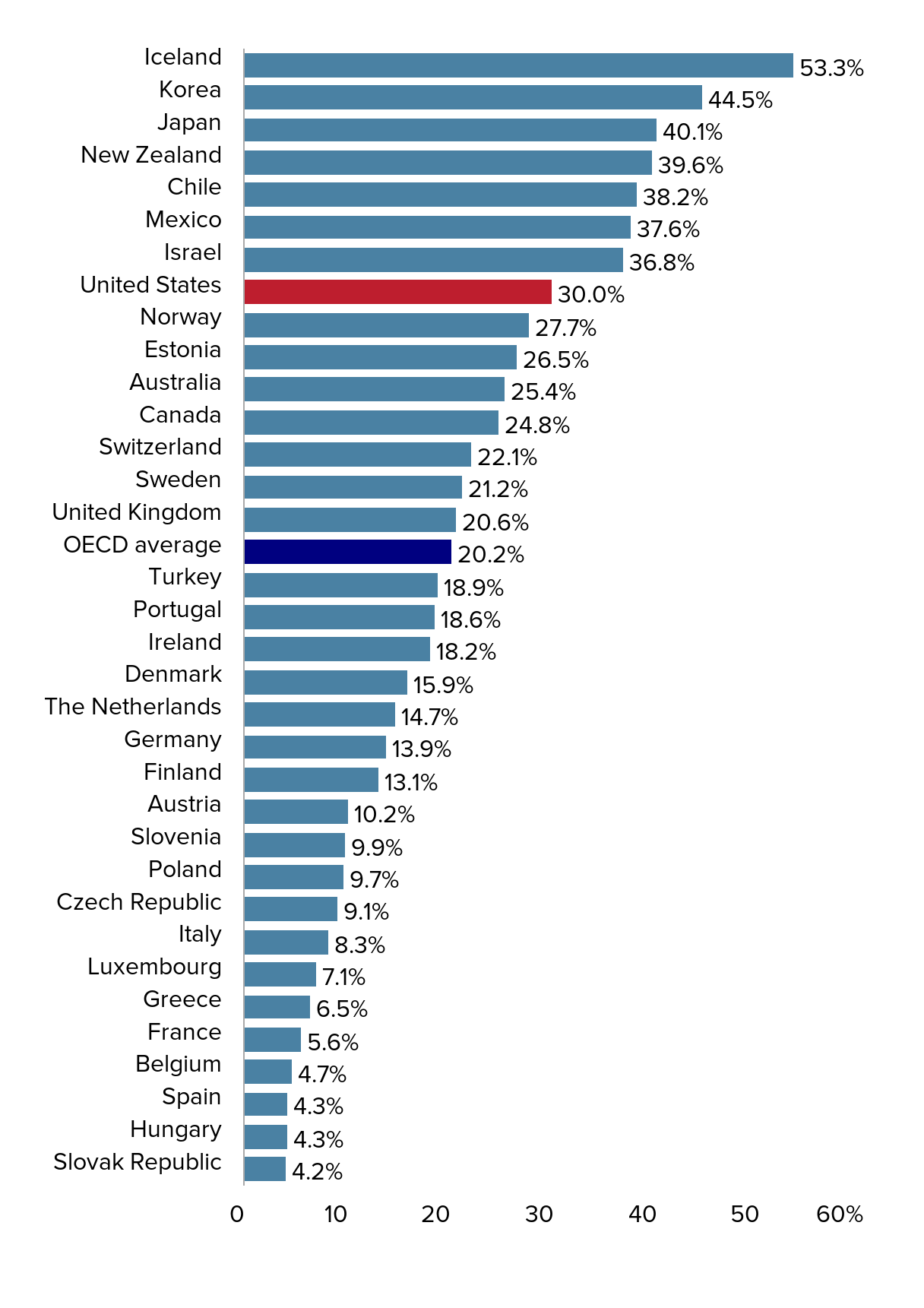Andrew Biggs of the American Enterprise Institute claims there is no retirement crisis in the United States. Citing a recent report showing that senior incomes are high relative to other countries in the Organisation for Economic Co-operation and Development (OECD), Biggs downplays the fact that many American seniors are not retired: 30 percent of 65- to 69-year-olds in the United States are employed, versus 20 percent in OECD countries on average. This ranks the United States eighth among 35 OECD countries in the share of 65- to 69-year-olds who are employed.
The real American retirement crisis is that too many seniors are working or poor: Employment rate of people age 65-69 in OECD countries, 2014
| 65-69 | |
|---|---|
| Iceland | 53.3% |
| Korea | 44.5 |
| Japan | 40.1 |
| New Zealand | 39.6 |
| Chile | 38.2 |
| Mexico | 37.6 |
| Israel | 36.8 |
| United States | 30.0 |
| Norway | 27.7 |
| Estonia | 26.5 |
| Australia | 25.4 |
| Canada | 24.8 |
| Switzerland | 22.1 |
| Sweden | 21.2 |
| United Kingdom | 20.6 |
| OECD average | 20.2 |
| Turkey | 18.9 |
| Portugal | 18.6 |
| Ireland | 18.2 |
| Denmark | 15.9 |
| The Netherlands | 14.7 |
| Germany | 13.9 |
| Finland | 13.1 |
| Austria | 10.2 |
| Slovenia | 9.9 |
| Poland | 9.7 |
| Czech Republic | 9.1 |
| Italy | 8.3 |
| Luxembourg | 7.1 |
| Greece | 6.5 |
| France | 5.6 |
| Belgium | 4.7 |
| Spain | 4.3 |
| Hungary | 4.3 |
| Slovak Republic | 4.2% |

Source: Organisation for Economic Co‑operation and Development (OECD) Labour Force Statistics
Other OECD countries tend to see larger declines in employment for workers in their 60s. France, for example, has the same employment rate for workers in their late 50s as the United States, but a much lower employment rate for workers in their late 60s. Senior incomes are closer to working-age incomes in the United States than in other OECD countries because the decline in the employment rate for workers in their late 50s to their late 60s is smaller. Biggs cites this fact as evidence that the U.S. retirement system is working, but it actually reflects the fact that fewer Americans are retiring.
It’s possible that American seniors enjoy working more than their counterparts in Europe and Canada. However, a less benign explanation for why Americans are less likely to retire is that our retirement system replaces a lower share of pre-retirement income. Due to high income inequality, the United States also has a high senior poverty rate. This situation is likely to get worse, as many seniors today receive traditional pensions in addition to Social Security, whereas tomorrow’s seniors will rely more heavily on inadequate 401(k) plans.